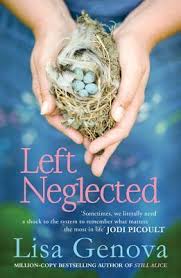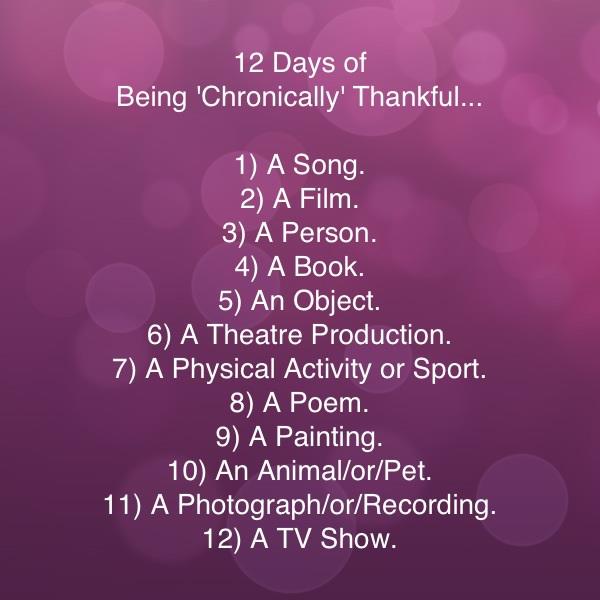
Welcome to the Health Activist Writer’s Month Challenge brought together by WEGO Health – a social network for all health activists. Again, I am participating in the annual Writer’s Month Challenge in which I will be writing about my health activism and health condition based upon prompts given.
Today’s prompt reads as follows:
Book report…What’s your favourite book and how can you tie it to your health or life?
For someone who is an avid reader, it is very difficult to choose one favourite book! I am regularly discovering new authors who has written amazing and enjoyable reads that are both thought-provoking and compelling. However, what does link many of my favourite authors and their books are the lack of characters who I am able to relate to in relation to life with a neurological condition.
Previously, I have written a post regarding the lack of credible and authentic portrayals of neurological conditions and other chronic illnesses within television. Unfortunately, the same could be said regarding fiction, as there is a lack of novels featuring accurate representations of life with a neurological condition, or even chronic illnesses. Perhaps, a reason for this is people want to read books for escapism, instead of reading a book about the often gritty realism of what it is to live with a long-term health condition, or perhaps it is the preference for a story that encompasses the hope of recovery and which depicts triumph over adversity.

One book that I recently read and thoroughly enjoyed, however, did portray one character’s battle with a neurological condition. The condition portrayed in the book, was not in any way similar to that of my own condition but I did relate to the character’s frustration and certain parts of her journey depicted in the story. The book is by a fantastic author named Lisa Genova. Lisa herself has a PhD in Neuroscience and could be argued the reason why Lisa is able to intertwine realistic and accurate portrayals of neurological conditions, with not just accurate information regarding the condition itself but also the emotional toll that it can have on both the patient and caregivers. The book that I particularly enjoyed of hers is ‘Left Neglected‘ a story of a high-powered career woman Sarah Nickerson who is left with a brain injury after a car accident. The injury is to the right hemisphere of her brain, which as a result leaves her with a ‘left neglect’ or ‘hemispatial neglect’, in which the brain forgets and ignores information on the left side of her body, and also the left side of her entire world. For example, after the accident, when her husband is stood by the left side of her, as her brain is unable to interpret or process the information Sarah is unable to see him; Sarah is also unable to feel anything on the left side of her body and therefore has to undergo physiotherapy in the attempt to learn how to walk and generally recover from the traumatic brain injury.
Obviously, there are many differences between the neurological condition that I live with and that of the character in the novel. For instance, the condition in which I live with is not a result of a traumatic brain injury, and in addition mine is one in which is life-long and no chance of recovery, where as in the novel through hard-work, determination and the aid of physiotherapy, recovery can be a possibility. The symptoms of the conditions are also extremely different – in the novel, the character Sarah has to learn and re-teach her brain to acknowledge the left side of the world and her body. In my everyday life, however I have to contend with constant dizziness, vertigo, trembling and weakness in legs as well as battling fatigue and nausea.
However, as much as there are extreme differences between my situation and that of the main protagonist in the novel, I did find myself relating to the book and that of the experiences of Sarah. As a high-powered career woman, Sarah was not the type of person to sit around, and therefore the novel excellently explore the frustration of suddenly being unable to do the simplest task for yourself. On the days where the severity of the weakness and trembling in the leg leaves me unable to get out of bed and so I feel the same frustrations of not just being stuck where I am and unable to do anything for myself, but also the frustration of not being able to do the things you love. Furthermore, I could really relate to the frustrations of the lack of progress in physiotherapy and the temptation to push yourself before you and your body are ready, leaving to a great many accidents which I have also experienced during my time in physiotherapy and whilst at home. Very often, when our bodies are at our weakest we adopt a “win” attitude. By which I mean, we attempt to defy the weaknesses and challenges of our conditions and attempt to ‘run before we can walk’. And by reading the book, it seems that both myself and Sarah have learnt that instead of trying to ‘win’ and suffering setbacks in the process, such as suffering falls and other accidents, we should instead accept the limitations that our conditions poses and adjust our lives accordingly.
The one thing that I loved and really took away from the book is how that despite limitations and various disabilities does not mean the end of doing what we love; that we can find different ways of doing things or taking part in activities which we never thought possible. In the book, for example Sarah goes on a vacation with her family and before the accident she loved snowboarding on the slopes where they stay. It’s at this point that she imagines that she will never be able to snowboard again, however after visiting a shop designed for those with disabilities she found that she may not be able to do like she did before the accident but there are ways in which she can still participate. It’s this lesson that I have learnt for myself, and one which I am constantly learning as I am finding new ways of adjusting to the challenges that my condition presents.



